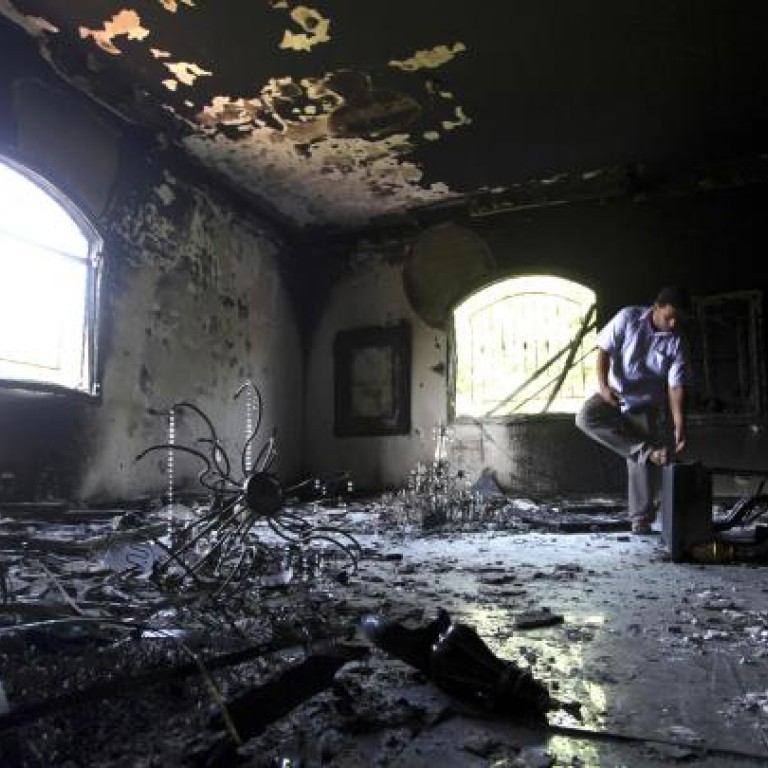
Defiant showing by alleged ringleader of attack on US consulate in Libya
Defiant showing by alleged ringleader of a raid on the US diplomatic compound in Benghazi
Just days after US President Barack Obama vowed to hunt down those responsible for the attack on the US consulate in Benghazi, Ahmed Abu Khattala - one of those considered a ringleader - spent two leisurely hours at a luxury hotel full of journalists, relaxed in a red fez and sandals.
Sipping mango juice on a patio overlooking the Mediterranean, he scoffed at the threats coming from both the American and Libyan governments.
Libya's fledgling national army was a "national chicken", Abu Khattala said, using an Arabic rhyme. Asked who should be responsible for apprehending the attackers, he chuckled at the weakness of the Libyan authorities. He accused US leaders of "playing with the emotions of the American people" and "using the consulate attack just to gather votes for their elections".
Witnesses have said that Abu Khattala helped lead the attack on the consulate last month. His defiance - no authority has questioned him about the attack, he said - offered an insight into the shadowy landscape of the self-formed militias that have come to constitute the only source of social order in Libya since the fall of Muammar Gaddafi.
A few, like the militia group Ansar al-Sharia that is linked to Abu Khattala and that officials in Washington and Tripoli agree was behind the attack, have embraced an extremist ideology hostile to the West. But also troubling to the US is the tolerance shown by other brigades thought to be more accepting of the West, which have so far declined to take any action against suspects in the Benghazi attack.
Although Abu Khattala said he was not a member of al-Qaeda, he declared he would be proud to be associated with al-Qaeda's puritanical zeal for Islamic law. He said the US had its own foreign policy to blame for the terrorist attacks of September 11, 2001. "Why is the United States always trying to impose its ideology on everyone else?" he asked. "Why is it always trying to use force to implement its agendas?"
Contradicting the accounts of witnesses and the most recent account of the Obama administration, he contended that the consulate attack had grown out of a peaceful protest against a video made in the US mocking the Prophet Mohammed and Islam.
He said guards inside the compound - Libyan or American, he was not sure - shot first at the demonstrators, provoking them. He claimed the attackers found weapons, including explosives and guns mounted with silencers inside the US compound.
He insisted he was not part of the aggression that took place that night. He said he entered the compound at the end of the battle because he was asked to help try to rescue four Libyan guards working for the Americans who were trapped. The attack resulted in the deaths of four Americans. "I did not know him," he said of Christopher Stevens, the US ambassador who was killed.
